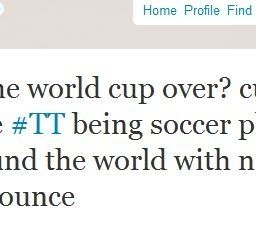Until recently, Clay Shirky was best known as the author of Here Comes Everybody: The Power of Organizing Without Organizations. The book was widely praised (seriously, Boing Boing calls it a “masterpiece”) and is still referenced by social media strategist/expert/guru types as a must-read for anyone looking to explore the social dynamics that drive the use of technology, which at the time (and even now, to a certain extent) is not what drives most conversation about the internet and social media in particular.

If you talk to any social media/internet “expert” or “enthusiast” these days, this perspective is seen as common knowledge, but without Shirky’s well-presented theory and research to bolster this theory it wouldn’t have taken root.
In 2010, you’d think that this argument wouldn’t need repeating or clarification, but as traditional media continues to evolve and digital use continues to grow and become more ubiquitous, the panic of social theorists and mainstream media commentators continues unabated. The continuing debate of whether the Internet makes you smarter or more stupid seems to have a new chapter each day, but in Cognitive Surplus, Shirky’s latest book, he does add fuel to that fire, but also offers a modified version of his Here Comes Everybody thesis: The Internet has given us the tools to create, publish and share media faster, cheaper and with more people than ever before
Shirky’s revised thesis is the reason that I think Cognitive Surplus is a must-read (there’s that term again) for media professionals in every field.
It gets at the root of the disruptive change that has rattled corporate media industries for the past decade: the music industry, television, print and traditional marketing and public relations. In addition, he places this change within a broader historical perspective: illustrating how social systems adapt to economic and technological change. (In the first chapter he uses the introduction and consumption of gin in 1700’s London to show how city dwellers were adapting to rapid industrialization)
For media industry professionals, Shirky challenges that the definition of “media” has undergone a redefinition:
He writes:
“We need a new conception for the word, one that dispenses with the connotations of “something produced for professionals for consumption by amateurs.”
Here’s mine: media is the connective tissue of society…
With this definition, the implicit competition between professional and amateur media becomes less relevant; there’s no need for both to not co-exist. While there’s still no definite answer for what that means for economic impact of media industries, i think it’s useful for traditional media professionals to wrap their heads around the evolution of media that’s shaken up the work that they do.
While I’m not a big fan of defining social media behavior by age, I do think this redefinition of media is not going to be as disruptive for future generations of media professionals, as many of them before they move into the profession of media making will have had years of “amateur” media making, sharing and commentary behind them before they enter the workforce.
Another topical thread in Cognitive Surplus is the comparison of online participatory culture (LOLcats, Wikipedia) to the television-driven consumer culture that has dominated our free-time since post World War II. (He calculates that Americans collectively watch roughly two billion hours of TV each year) In fact it’s a pretty defiant rebuttal against the trivialization of online culture (and participatory culture as a whole) against its critics. In this way, it’s kind of the spiritual sequel of Henry Jenkins seminal 1992 book on fan culture, Textual Poachers.
Nearly everyone who is active in online culture, whether its blogging, online gaming, fan culture or Twitter has received the often-derisive comment “where do you find the time?” Shirky argues that this new use of free time is mostly challenged by those who have a stake in preserving the once stable behavior of media consumption as the standard for what constitutes “free time,” i.e. television executives. In response, he writes:
“Media in the twentieth century was run as a single event: consumption… but media is actually like a triathlon: with three different events: people like to consume, but they also like to produce and to share. We’ve always enjoyed all three of those activities, but until recently, broadcast media only rewarded one of them.”
I’d argue that traditional media in general has only rewarded the consumption event of the triathlon, and the challenge is for media professionals to devise appropriate rewards for the other two legs, since the new standard for the audience of the future is to complete more than one. To not reward – or even acknowledge – these other two behaviors is the mistake that continues to hold back media industries as a whole.
Stay tuned for more TLF navel-gazing about this awesome book!




Very nice review! I’ve always wanted Shirkey to do an entire book on piracy, especially in the realm of BitTorrent networks. He speaks so much on the way that users not only consume content, but also produce content that I feel he may have an interesting or unique perspective on whether supposed “piracy” should be considered more as a sort of sharing. This is covered somewhat in “Steal This Film 2” http://www.stealthisfilm.com but from multiple perspectives (not all of them in agreement with one another necessarily). Nevertheless, I’ll certainly try to check out Clay’s latest book.
[…] Comments The Economic (and LO… on I can has cheezburger?: An exa…CharlieChicago on I read a book: Cognitive Surpl…TeenageConfidential on Blogging May Not Be Dead But L…Sue on ‘Cause we’re […]
[…] Content? Nah. Maybe. Posted on 2 October 2010 by keidra Only a few months after Clay Shirky’s book on the glorious new age of amateur content creation on the Web, Forrester Research reports that social media content creation in the U.S. – that means posting […]